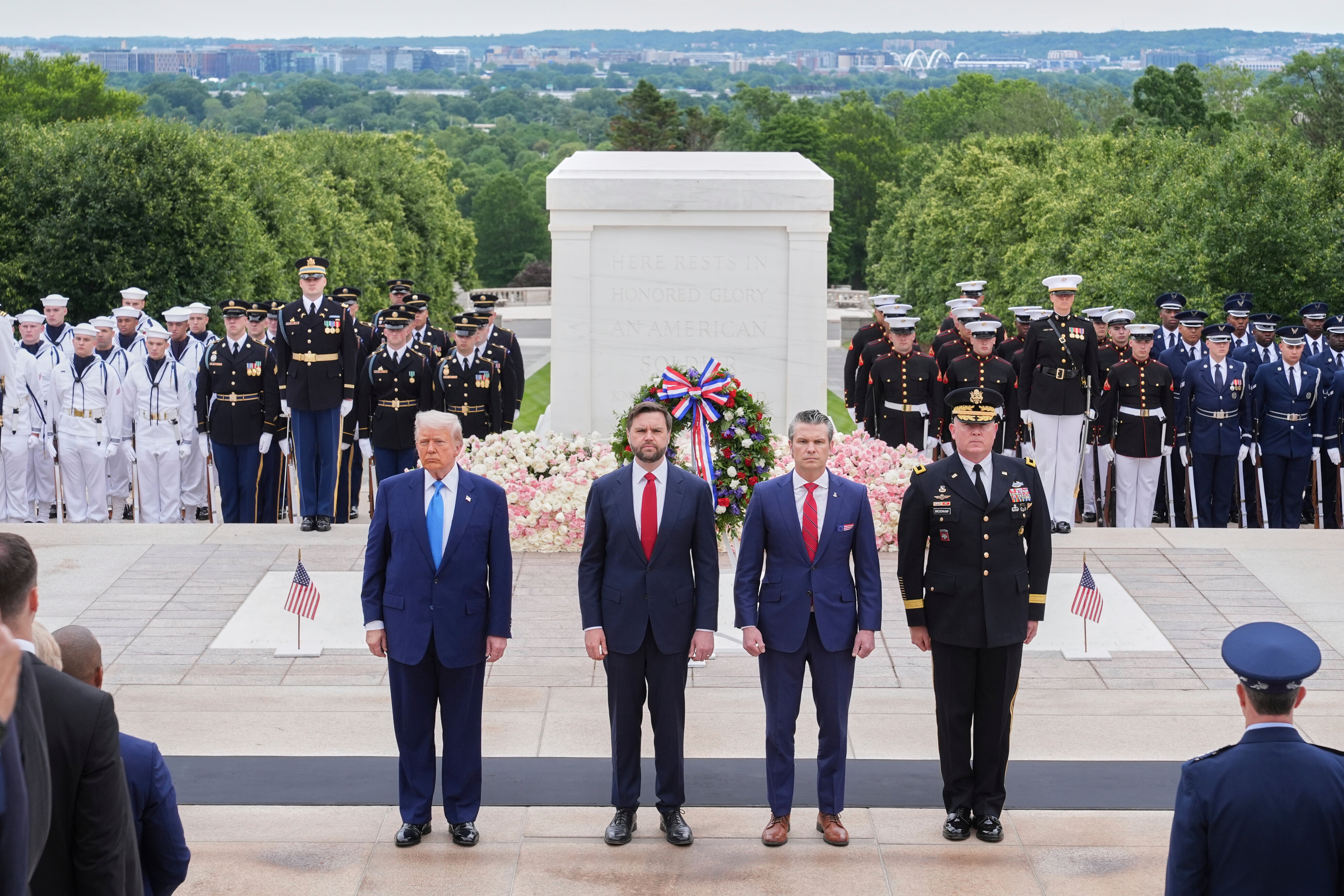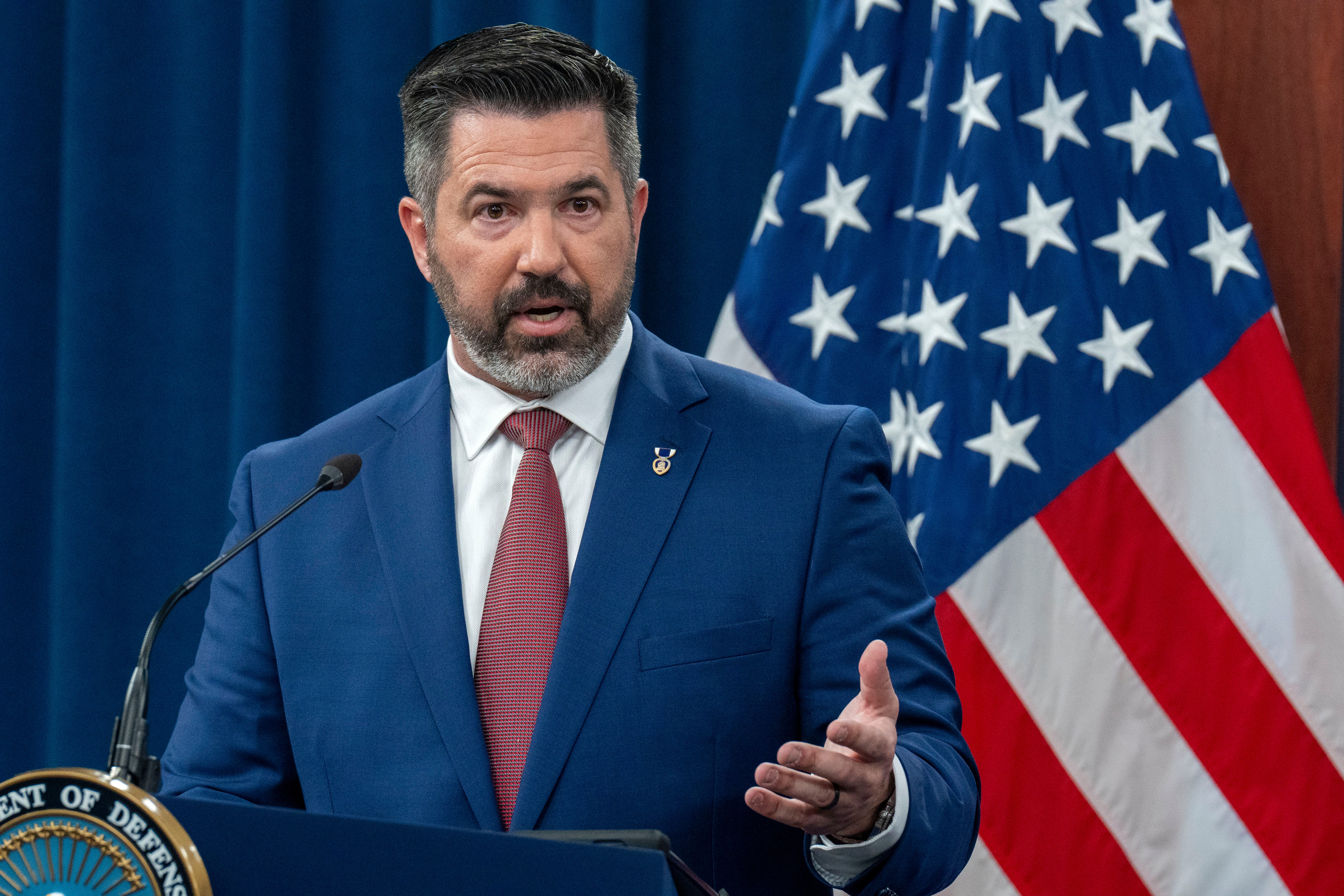The Pentagon is reportedly in the grip of a new Cold War, and it has nothing to do with Russia.
A rift between two senior advisers to Pete Hegseth has led to a wider schism at the department, fueling speculation about the long-term prospects of the embattled defense secretary as a member of President Donald Trump’s Cabinet, according to reporting by The Washington Post.
Numerous people familiar with the matter told the paper that claims of departmental unity are belied by continued dysfunction behind the scenes, stemming from personality conflicts, lack of experience, ongoing vacancies in important roles, and paranoia over what political crisis could erupt next.
“There’s a cold war that exists in between flash points,” one person told the Post, recounting numerous instances when tempers have flared among key figures on the secretary’s team.
“It’s unsettling at times.”
Sources, who spoke on condition of anonymity, fearing retribution, described the most combustible relationship as that between two Hegseth aides, Eric Geressy and Ricky Buria.
They claim that Geressy, a retired soldier whom Hegseth has credited with mentoring him during their service in Iraq, has expressed ongoing concerns that Buria, until recently a military assistant to the defense secretary and now his acting chief of staff, has attempted to marginalize colleagues to enhance his own standing within the Trump administration.
Amidst the fallout from the Signalgate scandal in March, tensions between the two are said to have boiled over when Geressy found out he was excluded from meetings during a trip across the Pacific by Hegseth and blamed Buria.
Geressy also voiced concern about how many administration officials were using Signal and told staffers that the White House had a dim view of Buria, seeing him as self-important.
A retired command sergeant major, Geressy is often praised by Hegseth, who awarded him the Distinguished Service Cross for combat valor. He leads the Joint Service Interagency Advisory Group (JSIAG), which includes numerous Special Operations troops and representatives from other government agencies. Their focus is on countering Mexican drug cartels, the Post reports.
Buria was a Marine Corps pilot who previously served as a junior military aide for President Joe Biden’s defense secretary, Lloyd Austin. In February, his responsibilities expanded when he assumed the role of a three-star general after Hegseth fired his senior military assistant, Lt. Gen. Jennifer Short, without providing any reason.
This elevation, and his handling of it, reportedly irritated numerous senior military officers. When the temporary assignment was coming to a close, Buria requested to retire from the Marine Corps and become a senior civilian adviser to Hegseth, with the reported backing of the secretary’s wife, Jennifer Hegseth, who has been advising him.
When Hegseth’s chief of staff, Joe Kasper, left in April, officials questioned whether the secretary could maintain departmental organization and manage disputes among staffers. He then named Buria as his acting chief of staff. It is unclear whether the White House will appoint a replacement or whether Buria can remain in the role long term.
Asked about a New York Post report that Buria had called Trump and Vance “crazy” and “dumb” in the past, the president said on Sunday he didn’t know who he was and would “recommend that we don’t take him” if such reporting was true.
Geressy, meanwhile, is frustrated by the chaos at the Pentagon and has contemplated resigning, according to CNN, but has stayed on out of loyalty to both Hegseth and his team.

These are tense times at the Pentagon, and friction between Geressy and Buria appears symptomatic of the instability at DoD after a series of scandals hit Hegseth, reportedly irritating the White House.
Current and former defense officials told the Post that it is unclear how long Hegseth can remain in the role without imposing order among his own staff.
Around the time of Buria’s elevation, Hegseth fired three politically appointed senior defense officials whom he accused of leaking sensitive information to the media.
Dan Caldwell, Darin Selnick, and Colin Carroll issued a scathing statement, stating that they had been slandered and that the claims leveled against them were baseless.
Sean Parnell, a senior adviser and chief spokesman for Hegseth, minimized the tension, saying in a statement to the paper that “workforce adjustments are a natural and necessary feature of any highly effective organization.”
Hegseth is “committed to ensuring the Department of Defense has the right people in the right positions to execute President Trump’s agenda,” Parnell said.

Furthermore, Parnell dismissed the significance of disagreements among Hegseth’s staff, stating that Americans outside Washington “don’t care about ‘palace intrigue’ or sensationalized, mainstream media gossip — they care about action.”
He said Hegseth’s team is “working in unison” to focus the Defense Department on “its core mission of warfighting and to deliver results.”
Parnell is one of three new senior advisers appointed in the wake of the recent firings.
Justin Fulcher and Patrick Weaver are the other two, with the former coming from DOGE and the latter having previously served as a congressional aide, on the National Security Council, and in the Department of Homeland Security.
Speaking on Monday at a Memorial Day wreath laying, Trump continued to show support for Hegseth, calling him a “tough cookie,” and saying he has “devoted his life to service members and veterans,” while acknowledging that he “went through a lot.”







